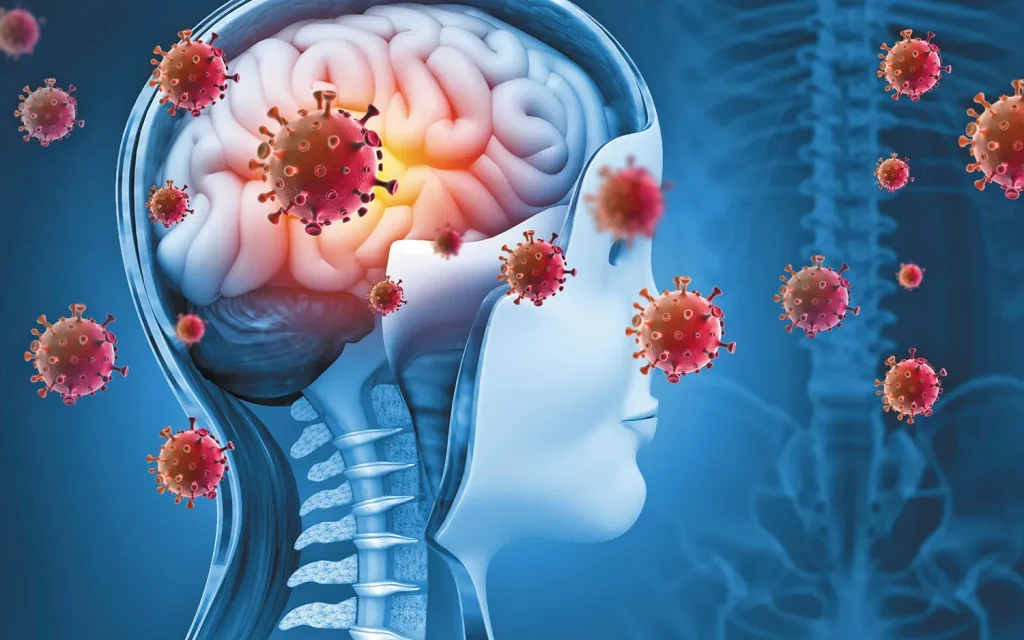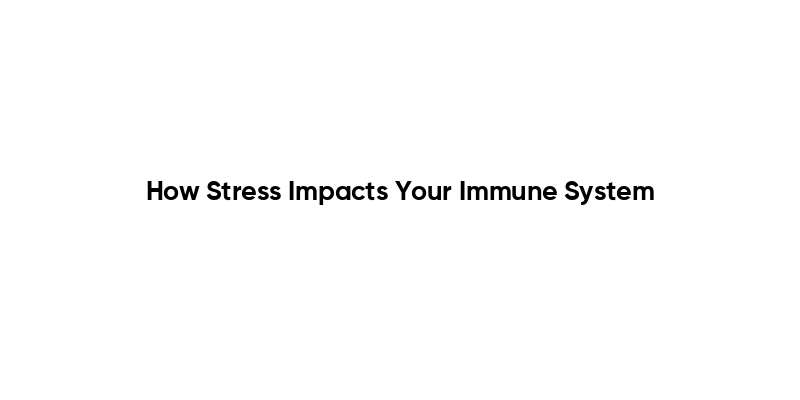Covid vaccine brain inflammation has emerged as a concerning topic, especially in light of reports involving serious neurological complications following vaccination. Recent cases, including that of a healthy 60-year-old man who developed meningoencephalitis after receiving the AstraZeneca vaccine, shed light on potential vaccine side effects that warrant attention. This condition involves inflammation of the brain and surrounding tissues, resulting from an exaggerated immune response to the vaccine. Despite the rarity of such occurrences, the diagnosis of postvaccinal encephalitis raises important questions about vaccine safety and the implications of AstraZeneca vaccine complications. As health authorities strive to balance the benefits of Covid vaccinations against the backdrop of potential risks, ongoing research aims to uncover the underlying mechanisms of these rare but significant adverse effects.
In recent discussions about vaccination, terms like post-injection brain swelling and vaccine-induced encephalitis have surfaced, reflecting concerns over adverse effects linked to Covid immunizations. Following the administration of certain vaccines, notably the AstraZeneca shot, some individuals have experienced severe neurological responses, prompting investigations into the safety profiles of these vaccines. Instances of meningoencephalitis, characterized by inflammation of both the brain and its protective membranes, have led to heightened scrutiny regarding vaccine complications. As public health officials review the data surrounding these reactions, the discourse around vaccine safety continues to evolve, emphasizing the need for comprehensive oversight. Understanding the relationship between vaccinations and neurological health is crucial for informing both healthcare providers and the general public about potential risks and benefits.
Understanding Covid Vaccine Brain Inflammation
Recent reports have emerged concerning the potential link between Covid vaccines and brain inflammation, specifically in cases such as the one involving a 60-year-old man who developed serious complications shortly after receiving the AstraZeneca vaccine. This terrifying incident has drawn attention to the need for increased awareness regarding the side effects associated with vaccines. As research continues, experts are urging healthcare providers and recipients alike to be vigilant for symptoms of brain inflammation, such as cognitive confusion and difficulties in walking.
Indeed, the condition identified in this patient, meningoencephalitis, underscores the importance of monitoring post-vaccination health. While the likelihood of developing such severe reactions remains low, the implications can be life-altering for those affected. There is a pressing need for broader studies to comprehensively evaluate the incidence of postvaccinal encephalitis and its manifestations in different individuals, particularly in the elderly, who may be at greater risk due to pre-existing health conditions.
The Link Between AstraZeneca Vaccine Complications and Meningoencephalitis
The AstraZeneca vaccine has been at the center of ongoing debates concerning vaccine safety, particularly in relation to reported complications like meningoencephalitis. Statistical analyses suggest that the AstraZeneca vaccine has been linked to approx 35% of vaccine-induced encephalitis cases, raising alarms for patients and healthcare authorities. This connection necessitates thorough investigations to clarify the mechanisms by which the vaccine may trigger such inflammatory responses, further ensuring that appropriate measures are taken to safeguard public health.
In light of these revelations, it is essential for health agencies to communicate transparently about the risk factors associated with different vaccines. While the AstraZeneca vaccine significantly contributed to efforts in reducing Covid-19 mortality, the emerging cases of meningoencephalitis remind us that vaccine safety must remain a foremost priority. Greater emphasis should be placed on educating the public about recognizing symptoms and seeking medical attention promptly, thus enhancing the overall vigilance in monitoring vaccine responses.
Postvaccinal Encephalitis: Symptoms and Recovery
Postvaccinal encephalitis, a rare but concerning vaccine side effect, has gained attention following recent case studies. It primarily manifests with neurological symptoms such as confusion, weakness, and seizures. Understanding these symptoms is crucial, as early identification can lead to timely medical intervention that could mitigate long-term effects. The reported case of the 60-year-old man highlights that while recovery is possible, the journey may involve complex treatments and a prolonged recovery period, often requiring immune-suppressing medications.
Additionally, the long-term prognosis for individuals who experience postvaccinal encephalitis varies widely. While many patients have successfully recovered, as seen in the recent case, there can be lingering effects that may not be immediately apparent. Therefore, ongoing monitoring and support for those affected are vital to enhance their quality of life and rehabilitate their neurological function. Future studies are undoubtedly necessary to provide deeper insights into recovery patterns and to further elucidate the relationship between vaccination and neurological health.
Current Perspectives on Vaccine Safety Monitoring
Vaccine safety monitoring remains an essential component of public health strategy, particularly in the context of Covid vaccinations. Regulatory bodies around the world have established robust frameworks to track and analyze side effects, ensuring that any potential risks are identified and addressed promptly. The AstraZeneca vaccine’s timeline illustrates how health officials can respond to emerging data regarding complications, leading to cautious but informed recommendations. Such proactive measures instill public confidence in the safety of vaccines.
Moreover, as vaccine hesitancy rises due to reports of adverse effects, maintaining transparency about both benefits and risks becomes increasingly crucial. Public health campaigns must aim to clarify misconceptions while emphasizing the critical role vaccines play in combating infectious diseases like Covid-19. By fostering dialogue about vaccine safety and efficacy, health authorities can encourage informed decision-making, reinforcing the community’s belief in vaccination as a key tool for public health management.
The Role of Regulatory Bodies in Vaccine Administration
Regulatory bodies play an indispensable role in ensuring that vaccines administered to the public meet rigorous safety standards and efficacy profiles. In the case of the AstraZeneca vaccine, health agencies have been closely monitoring reports of complications, which have led to the implementation of recommendations and restrictions in certain demographics. These actions highlight the dynamic nature of vaccine administration, reflecting the commitment to patient safety while maintaining public health objectives.
Additionally, ongoing assessments from regulatory bodies provide essential guidance for healthcare providers, especially regarding the management of potential vaccine side effects. This constant dialogue encourages practitioners to remain vigilant for symptoms among their patients and educates them on the appropriate steps to take should complications arise. As the landscape of vaccine administration continues to evolve, the partnership between regulatory bodies and healthcare providers must adapt to ensure sustained trust in vaccination programs.
Analyzing the Risks of Vaccine Side Effects in Older Adults
Older adults may face a heightened risk of vaccine side effects, which necessitates careful consideration during vaccination campaigns. As seen in the AstraZeneca vaccine’s case, some individuals have experienced significant post-vaccination complications, emphasizing the importance of tailoring vaccine approaches for older populations. Health professionals need to assess individual risks and benefits proactively, ensuring that patients are well-informed about potential reactions while encouraging them to remain mindful of their health post-vaccination.
Furthermore, initiatives aimed at safeguarding older populations can include enhanced monitoring protocols post-vaccination. Establishing follow-up care can help healthcare providers to track patients’ health trajectories and address any emerging side effects promptly. By implementing these strategies, it is possible to foster a stronger sense of safety and confidence among older adults as pivotal members of the vaccination efforts in combating Covid-19.
Public Health Campaigns: Balancing Risks and Benefits
Public health campaigns play a pivotal role in addressing vaccine safety concerns while promoting vaccination uptake. Acknowledging potential vaccine side effects, such as those linked to the AstraZeneca vaccine, is crucial, but these discussions must be framed within the context of the broader public health benefits. The resounding success of vaccines in reducing the impact of the Covid-19 pandemic should guide these campaigns, which must also reassure communities about the rigorous safety evaluations conducted prior to vaccine rollout.
Additionally, creating accessible materials that clarify the nuances of vaccine risks and benefits can empower individuals to make informed decisions. Tailored messaging can specifically target diverse populations, addressing unique concerns related to vaccine safety. Ultimately, a well-informed public equipped with accurate information will help maximize the community’s willingness to engage in vaccination programs, safeguarding overall health outcomes.
Future Directions in Vaccine Research and Development
The experience gained from the Covid-19 vaccination campaign will undoubtedly influence future directions in vaccine research and development. As researchers delve into the mechanisms behind side effects such as meningoencephalitis and postvaccinal encephalitis, new protocols and safety measures can emerge. By unraveling the complexities surrounding these complications, medical scientists may develop vaccines with lower incidence rates of adverse reactions, without compromising efficacy against infectious diseases.
Moreover, enhanced collaboration between researchers, regulators, and health professionals will be essential in adapting vaccination strategies based on emerging data. As findings about vaccine safety evolve, it will be crucial for ongoing education to permeate all levels of health care, ensuring that practitioners are well-versed in the most current information available. This collective effort will not only improve vaccine formulations but also cultivate a robust framework for addressing safety concerns as new vaccines are developed in the future.
Frequently Asked Questions
What is Covid vaccine brain inflammation and its relation to vaccine side effects?
Covid vaccine brain inflammation refers to a serious condition that can occur as a rare side effect of vaccines, particularly the AstraZeneca vaccine. This condition, often identified as postvaccinal encephalitis or meningoencephalitis, results from an overreaction of the immune system to the vaccine, leading to inflammation of the brain and surrounding tissues.
Can the AstraZeneca vaccine cause complications like meningoencephalitis?
Yes, there have been documented cases where complications such as meningoencephalitis have been linked to the AstraZeneca vaccine. These cases, although rare, involve severe brain inflammation that can result in significant health issues and underline the importance of monitoring vaccine safety.
What are the symptoms of postvaccinal encephalitis after receiving a Covid vaccine?
Symptoms of postvaccinal encephalitis may include cognitive confusion, difficulty walking, and other neurological issues that arise weeks after vaccination. In severe cases, individuals may experience brain swelling, necessitating medical intervention.
How do health authorities ensure the safety of Covid vaccines regarding brain inflammation?
Health authorities continuously monitor vaccine safety through robust reporting systems and studies. They analyze cases of adverse reactions, including instances of brain inflammation like postvaccinal encephalitis, to maintain public health and safety while assessing the benefits of vaccines against Covid-19.
What should I do if I experience neurological symptoms after a Covid vaccine?
If you experience neurological symptoms such as confusion or difficulty walking after receiving a Covid vaccine, it is crucial to seek medical care promptly. Healthcare providers can evaluate your condition and determine if it is related to potential vaccine side effects, including brain inflammation.
Are the risks of brain inflammation from Covid vaccines worth the protective benefits?
Despite rare risks associated with brain inflammation from Covid vaccines, especially the AstraZeneca vaccine, health officials assert that the overall benefits, including reduced Covid mortality, outweigh these risks. Vaccination remains a key strategy in public health efforts to combat the virus.
Is there a history of vaccine-related encephalitis from Covid vaccinations?
Yes, there have been historical cases of vaccine-related encephalitis associated with various vaccines, including Covid vaccines. Ongoing studies seek to better understand these reactions and help ensure vaccine safety for the public.
How prevalent is brain inflammation as a side effect of the Covid vaccines?
Brain inflammation as a side effect of Covid vaccines is very rare. Most individuals do not experience severe reactions, and while some cases have been reported, significant recoveries are common, emphasizing the need for continued vaccine usage amid safety monitoring.
| Key Points | Details |
|---|---|
| Covid vaccine brain inflammation | Experts warn the vaccine can trigger deadly brain inflammation as evidenced by a serious case following the AstraZeneca shot. |
| Case example | A healthy 60-year-old man experienced complications after vaccination, diagnosed with meningoencephalitis. |
| Symptoms | Post-vaccination issues included difficulty walking and cognitive confusion. |
| Immune response | Inflammation was attributed to an overactive immune response rather than viral infection. |
| Treatment and Recovery | The patient required six months of immune-suppressing medications and achieved near-complete recovery after three years. |
| Investigation findings | Studies suggest AstraZeneca is notably linked to vaccine-induced encephalitis cases. |
| Regulatory actions | Despite risks, the benefits of the vaccine are considered to outweigh the potential for rare severe side effects. |
| Compensation claims | Approximately 293 claims related to vaccine injury have been made in the UK, indicating ongoing concerns. |
Summary
Covid vaccine brain inflammation is a crucial topic of ongoing research and public health discussion. Recent cases and studies indicate a small risk of severe neurological complications, particularly associated with the AstraZeneca vaccine. However, health officials maintain that the overall benefits of vaccination against Covid-19 far exceed these potential risks. As more data emerges, the medical community continues to analyze and understand the mechanisms behind these adverse effects to ensure safe vaccination practices.



